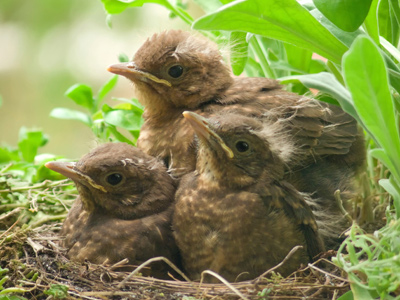
Ask the AI Tutor
Need help with Investigating - Grouping and Classifying? Ask our AI Tutor!
AI Tutor - Lucy
Connecting with Tutor...
Please wait while we establish connection

Animals with feathers are grouped together as birds.
Investigating - Grouping and Classifying
In this KS1 Science quiz, you’ll group and classify objects, spotting patterns and sorting things by properties like material, shape, or whether they are magnetic.
1 .
Alice was putting animals into groups. One group was:
Polar Bear, Arctic Fox, Arctic Hare.
Why did Alice NOT put penguins into this group?
Polar Bear, Arctic Fox, Arctic Hare.
Why did Alice NOT put penguins into this group?
Because they all live in cold places
Because they all start with the letter A
Because they are all carnivores
Because penguins live in the Antarctic
Yes, it’s number 4 - all the other animals live in the Arctic, near the North Pole. Penguins live in the Antarctic, near the South Pole
2 .
3 .
4 .
5 .
Ella was asked by her teacher to make a list of four things that need electricity to work. Which one of these groups is the best answer?
Vacuum cleaner, fridge, vacuum flask, cool box
Fridge, freezer, cool box, vacuum flask
Vacuum cleaner, fridge, freezer, computer
Computer, television, smart phone, mirror
Which one of the groups has 3 things that use electricity?
6 .
7 .
8 .
9 .
Sam was doing science at school. The teacher asked him to put different animals into groups. Sam put us - human beings - in the same group as penguins, sparrows and chickens. Why did Sam put human beings into that group?
Because they all have feathers
Because they all walk on two legs
Because they all lay eggs
Because they can all fly
What other animals can walk on two legs?
**Unlimited Quizzes Await You! 🚀**
Hey there, quiz champ! 🌟 You've already tackled today's free questions.
Ready for more?
Ready for more?
🔓 Unlock UNLIMITED Quizzes and challenge yourself every day. But that's
not all...
not all...
🔥 As a Subscriber you can join our thrilling "Daily Streak" against other
quizzers. Try to win a coveted spot on our Hall of Fame Page.
quizzers. Try to win a coveted spot on our Hall of Fame Page.
Don't miss out! Join us now and keep the fun rolling. 🎉
**Unlimited Quizzes Await You! 🚀**
Hey there, quiz champ! 🌟 You've already tackled today's free questions. Ready for more?
🔓 Unlock UNLIMITED Quizzes and challenge yourself every day. But that's not all...
🔥 As a Subscriber you can join our thrilling "Daily Streak" against other quizzers. Try to win a coveted spot on our Hall of Fame Page.
Don't miss out! Join us now and keep the fun rolling. 🎉
















